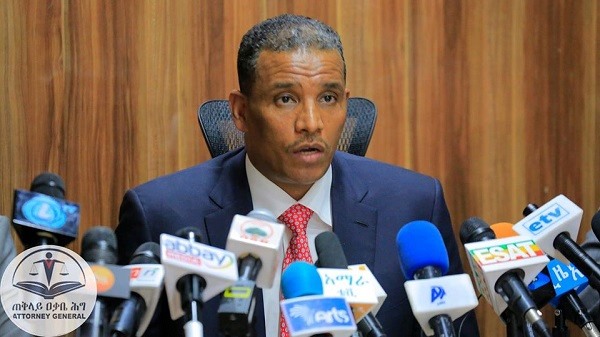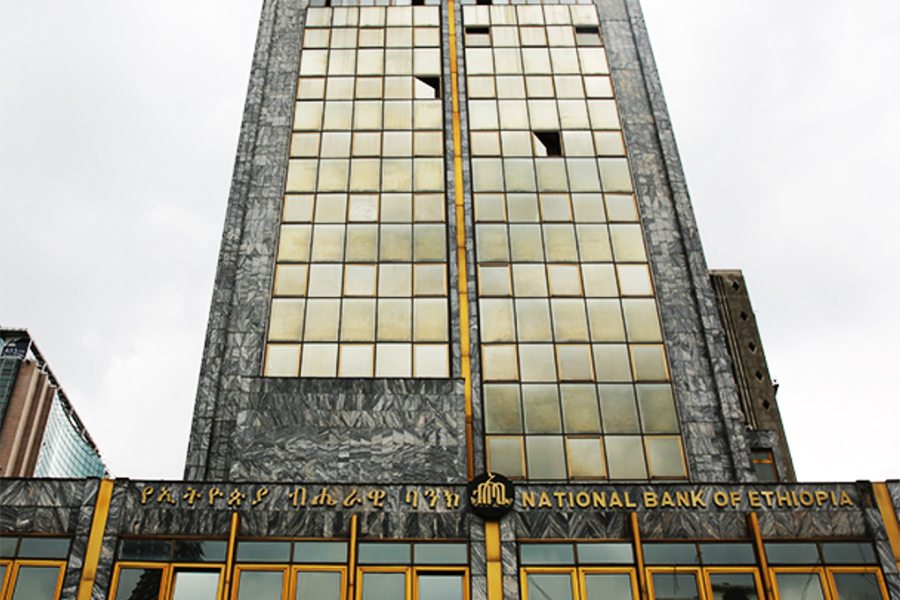
Parliamentary tensions peaked last week following the Federal Auditor General’s report that unearthed unprecedented financial mismanagement across various federal agencies. As legislators geared up to vote on the budget bill for the upcoming fiscal year, the report presented by Auditor General Meseret Damtie pressed for wariness and integrity in governance.
Finance Minister Ahmed Shide and Transport Minister Alemu Sime (PhD) were among the few cabinet ministers present, while Minister of Labor & Skills Muferiat Kamil and Trade Minister Gebremesqel Chala left early, perhaps anticipating the storm of criticism about to be unleashed. According to a Parliamentarian, the glaring absence of high-ranking officials running the agencies subject to audit fault demonstrated a troubling trend undermining the federal legislator's oversight capabilities.
Parliament's Deputy Speaker, Lomi Bedo, conceded that the dearth of senior executive branch members should be addressed.
"It [the session] wasn't about between us and the auditor general," she said, pledging to refer the issue to the Parliament standing committee responsible for compliance.
Despite the modest turnout, the Auditor General commanded the room as she laid bare the financial mismanagement and legal breaches plaguing numerous federal agencies over the past year. She painted a stark picture: 14 billion Br in unaccounted allowances and returns, 19 billion Br in unspent budget across 101 agencies, and a mere 79 out of 169 agencies receiving unqualified opinions. While 15 agencies received adverse opinions, 10 institutions could not be audited due to security concerns. The number of agencies receiving qualified opinions dropped by 15 to 50.
Among the most glaring issues was the failure of 92 agencies to recover funds amounting to around 394 million Br identified in previous audit reports. Adequate documentation was provided for only 10pc of last year's five billion Birr outstanding. The Information Network Security Administration (INSA) stood out as the only federal agency that recovered nearly all of its outstanding amounts.
The Ministry of Innovation & Technology, led by Minister Belete Molla, was one of two federal agencies that captured Parliament's interest in performance audits. It took much of the blame for failing to recover 70pc of a total of over 363 million Br in collectables by the two agencies, including Wollo Tertiary Hospital. Its failures to complete projects on time — such as science cafes and digital transformation — resulted in public losses of 43 million Br and 277 million Br, respectively, disclosed the audit findings.
The Auditor General has exposed widespread inefficiencies within federal agencies, raising serious concerns about the management and accountability of public funds. She pressed for comprehensive reforms and stricter oversight to enhance financial governance and transparency in the public sector. Recounting a conversation with her predecessor, Gemechu Dubisso, the Auditor General stated the longstanding issues plaguing her office. Gemechu, who served as Auditor General for 12 years, confided that little was done to hold audit offenders accountable during his tenure.
"There is a lack of checks and balances in every step of the administrative ladder," he told Fortune.
Gemechu called for civil society, including professional associations and the media, to take a more active role in scrutinising audit findings and pressuring government agencies to address the identified shortcomings. The former Auditor General believes that such external pressure is essential for promoting a culture of accountability within the public sector.
Despite the austere economic climate, several agencies mismanaged their budgets.
"Some overspent while others kept the budget unused," Meseret told legislators.
Increased oversight by the Ministry of Finance led to the termination of three university presidents from Wolaita Sodo, Gambella, and Mizan-Tepi for fiscal mismanagement.
Over 100 agencies unexpended a staggering 19 billion Br, equivalent to what agriculture received under this year's budget. The Ministry of Finance contributed around eight billion Birr to the total unexpended amount.
"We've informed them to be careful in formulating their budget," she added.
The Auditor General's findings extended beyond financial imprudence.
Some institutions were found operating outside their legal mandates.
The Auditor General revealed that the Immigration & Citizenship Services (ICS) collected unauthorised fees and outsourced services to an unregistered company, Viditure, at a steep cost to Ethiopian expatriates. ICS officials opened bank accounts under individual names to collect 17 million Br in fees, violating the law governing public finance administration. The absence of behavioural guidelines by ICS and poor etiquette was also disclosed as federal auditors discovered the use of offensive language, citizen mistreatment, and even physical assaults during their field inspection of ICS.
Parliamentarians were left awestruck by the detailed report.
Dube Julo (MP-PP) condemned the widespread financial mismanagement in public universities and called for outsourcing project management duties to curb the rampant fraud.
"They've become grounds for financial fraud," Dube said.
The revelation that the Ministry of Mines met only around a quarter of its export target of 4.8 billion dollars over six years and failed to adequately document the country's minerals further shocked legislators. The Institute of Geological Survey and the Mineral Industry Development Institute, which report to the Mines Ministry, failed to provide timely and satisfactory documentation to the auditors.
A few of the opposition legislators fumed.
Bartema Fikdadu (MP-Ezema) rumbled his disappointment in the continued trend of budget misuse amid severe shortages.
"To whom is the report presented?" Bartema bemused, observing the low attendance by many of those from the executive branch.
He called on his fellow legislators to use the audit findings to inform their oversight of the agencies during standing committee reports.
"Few benefit from financial fouls while the majority succumb to poverty," he added.
Bartema directed his piercing rage to the dismal performance of state-owned enterprises (SOEs) such as the Ethiopian Railway Corporation, whose debts had ballooned to 126pc of its capital while trains remain a rare sight in the capital. Under the Public Enterprises & Holding Agency, SOEs had amassed nearly 50 billion Br in debts, which should have been paid by September last year. The financial woes of the Ethiopian Electric Power and Ethiopian Sugar Corporation were also stressed, with their financial mismanagement threatening legal consequences.
Other legislators questioned the Parliament’s role in creating legislative instruments when there was widespread apathy for laws and regulations.
Abera Tadesse, deputy auditor general, noted that countries following a parliamentary system rely on external auditors to take measures against financial foul play. He revealed plans to heighten ties with the Ministry of Justice and called on the media and civil society to increase pressure on some agencies.
"External pressure is essential to ensure accountability," Abera told legislators.
Auditor General Meseret disclosed to Fortune that her office will post the audit findings through its websites.
Unlike in countries like the United Kingdom (UK), where auditors can gird accountability based on their findings, Ethiopia's Auditor General is limited to disclosure, recommendations and referring issues to relevant agencies. A near trillion Birr budget looms for approval in the coming weeks, but the Auditor General argued no recommendations were put forth on how the federal budget should be apportioned based on audit findings, as the mandate rests with the Ministry of Finance.
PUBLISHED ON
Jun 22,2024 [ VOL
25 , NO
1260]

Radar | Oct 31,2022

Radar | Jul 11,2021

Radar | Feb 23,2019

Fortune News | Nov 16,2019

Radar | Apr 26,2019

Radar | May 31,2020

Editorial | Jun 22,2024

Fortune News | Jun 17,2023

Commentaries | Jun 15,2024

Fortune News | Sep 30,2021

Dec 22 , 2024 . By TIZITA SHEWAFERAW
Charged with transforming colossal state-owned enterprises into modern and competitiv...

Aug 18 , 2024 . By AKSAH ITALO
Although predictable Yonas Zerihun's job in the ride-hailing service is not immune to...

Jul 28 , 2024 . By TIZITA SHEWAFERAW
Unhabitual, perhaps too many, Samuel Gebreyohannes, 38, used to occasionally enjoy a couple of beers at breakfast. However, he recently swit...

Jul 13 , 2024 . By AKSAH ITALO
Investors who rely on tractors, trucks, and field vehicles for commuting, transporting commodities, and f...

Jul 12 , 2025
Political leaders and their policy advisors often promise great leaps forward, yet th...

Jul 5 , 2025
Six years ago, Ethiopia was the darling of international liberal commentators. A year...

Jun 28 , 2025
Meseret Damtie, the assertive auditor general, has never been shy about naming names...

Jun 21 , 2025
A well-worn adage says, “Budget is not destiny, but it is direction.” Examining t...